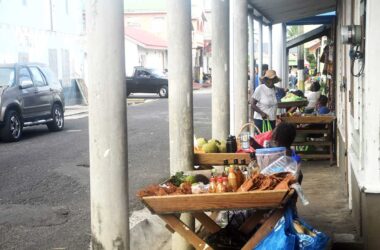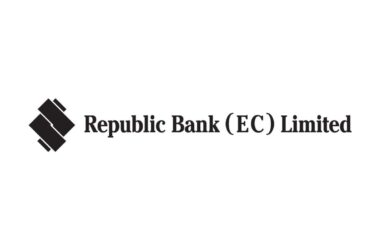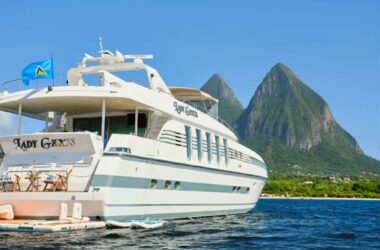
Disclaimer: the views presented are those of the author and do not necessarily represent those of any of the organizations he is associated with. Comments and feedback that further the regional dialogue are welcome at axel.kravatzky@syntegra-esg.com
Across the world, governments, investors, companies, and other institutions have begun to understand that transitioning to an environmentally and sustainable society and economy is urgent. In the Caribbean, we believe we have more urgent needs – food and shelter for instance, in the face of failing economies or rising storm seasons – and do not understand how sustainable finance could possibly be helpful.
To repeat, sustainable development is defined as development that meets the needs of the present without compromising the ability of future generations to meet their own needs. In 2015 members of the UN agreed on the UN 2030 Agenda, including a set of specific sustainable development goals (SDGs) to be achieved by 2030. The SDGs include environmental (climate is one) as well as social dimensions.
At present the world is not on track to achieve the SDGs by 2030. For developing countries alone, the UN estimates that the financing gap to achieve the goals is $2.5-3 trillion a year! Gaps are certainly not limited to developing countries. In the four years preceding the COVID-19 pandemic, nearly one quarter (24%) of the EU working-age population found themselves at some point below the at-risk-poverty threshold.
In 2018 the EU launched a major action plan to direct private capital towards financing sustainable growth.
In 2019 the EU Commission adopted and in 2020 the European Parliament approved the European Green Deal that requires the EU to:
• Reach net-zero greenhouse-gas (GHG) emissions by 2050
• Decouple economic growth from resource use;
• Leave no person and no place behind.
The OECD (Organisation for Economic Co-operation and Development) estimates that we need to invest $630 billion a year worldwide for the next ten years in order to have a 66% chance of limiting the temperature increase on the earth’s surface to below 2 C.
It is clear that these transformations and investments require collaboration between governments and private sectors to mobilize their full capacities.
The European Green Deal Investment Plan is based on three dimensions:
• Financing: mobilizing at least Euro 1 trillion of sustainable investments until 2030. This will be composed of both public and private investments.
• Enabling: providing incentives to unlock and redirect public and private investment. To do this, the EU is providing tools for investors by placing sustainable finance at the heart of the financial system.
• Practical support: the EU Commission provides support to public authorities and project promoters.
The following are the four main components of the current EU regulatory framework for sustainable finance:
1. The Sustainability-Related Disclosures in Financial Services Sector (SFDR) (Regulation 2019/2088 adopted in 2019, in force since March 2021): this requires entities in the financial markets to publish information on: (i) policies for identifying and prioritizing sustainability indicators and principal adverse sustainability impacts (PIAs); (ii) a description of the PIAs and actions taken by the entity to address these; (iii) summaries of engagement policies; (iv) compliance with responsible business codes of conduct, internationally recognised standards for due diligence and reporting; and where relevant, the degree of alignment with the objectives of the Paris Agreement.
2. The EU taxonomy (Regulation 2020/852 adopted July 2020, in force since January 2022): this is a classification system for environmentally (and in future socially) sustainable activities. This is the world’s first-ever ‘green list’ – a classification system for what activities can be counted as sustainable. This year the first set of companies need to track and report what proportions of the OpEx and CapEx are aligned with the taxonomy. Financial market participants (e.g. asset managers, pension providers) need to report what proportion of their investments are aligned to the taxonomy.
3. The proposed Corporate Sustainable Reporting Directive (CSRD) (Commission adopted proposal for a directive, COM/2021/184, in April 2021) The EU Parliament is expected to adopt the directive which amends existing reporting requirements in 2022; this will replace the Non-Financial Reporting Directive (NFRD). (Companies need to be prepared to report on 2023 business activities by 2024.) At present about 11,600 companies in the EU need to report in conformance with NFRD. This number will increase to about 49,000 under CSRD because it will include all large companies and companies listed on regulated markets. Reported information will need to be audited (assured). Reporting requirements will be more detailed, including information (qualitative, quantitative, retrospective and forward-looking) on principal adverse impacts connected to the company and its value chain. Strategy, targets, and roles of boards will be subject to mandatory EU sustainability reporting standards.
4. The proposed Sustainable Corporate Governance (SCG) directive (Commission adopted proposal for directive on 23 February 2022): Governing bodies and entities will need to demonstrate that they are fulfilling their due-diligence duties with respect to their impact on: (a) human rights, including workers’ rights; (b) health; (c) the climate; and (d) the environment. Companies need to prevent, mitigate, and account for potentially adverse sustainability impacts as defined by the UN Guiding Principles on Business and Human Rights and the OECD Guidelines. Entities will need to identify and act on both upstream and downstream risk, and disclose information on their policies, processes, activities, findings, measures taken and outcomes of the measures.
The time is right for Caribbean governments and private sectors to chart our own framework towards sustainable development and resilience. Surely this is urgent and necessary work for Caricom? The EU, though a work in progress, can serve as a framework model, and the work already done presents the opportunity to simplify and adapt to our context. There are major overlaps that require alignment as well as complementarities among these EU regulations. For example, the CSRD is largely focused on the entity as a whole, while the taxonomy is focused on activities, and the SFRD on financial advisors and financial products.
Together they transform the work of companies, their boards, investment flows and the reporting landscape towards people’s wellbeing and the health of organizations and the planet.

Dr Axel Kravatzky is managing partner of Syntegra-ESG Inc., chair of TTBS/TC309 Mirror Committee, vice-chair of ISO/TC309 Governance of organizations, and the co-convenor and editor of ISO 37000 Governance of organizations – Guidance. He is currently the project leader for ISO 37006 Indicators of effective governance.













